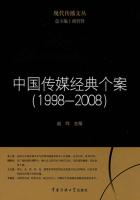The campaign of 1856 created an excitement in our village which had never been known since the Revolutionary War. The old families who had been settled there since colonial days were mainly pro-slavery and Democratic, while the Republican party was recruited very largely from New England men and in a minority.
Several times in our national political campaigns there has been one orator who drew audiences and received public attention and reports in the newspapers beyond all other speakers. On the Democratic side during that period Horatio Seymour was pre-eminent.
On the Republican side in the State of New York the attractive figure was George William Curtis. His books were very popular, his charming personality, the culture and the elevation of his speeches put him in a class by himself.
The Republicans of the village were highly elated when they had secured the promise of Mr. Curtis to speak at their most important mass meeting. The occasion drew together the largest audience the village had known, composed not only of residents but many from a distance. The committee of arrangements finally reported to the waiting audience that the last train had arrived, but Mr. Curtis had not come.
It suddenly occurred to the committee that it would be a good thing to call a young recruit from a well-known Democratic family and publicly commit him. First came the invitation, then the shouting, and when I arose they cried "platform," and I was escorted to the platform, but had no idea of making a speech.
My experience for years at college and at home had saturated me with the questions at issue in all their aspects. From a full heart, and a sore one, I poured out a confession of faith.
I thought I had spoken only a few minutes, but found afterwards that it was over an hour. The local committee wrote to the State committee about the meeting, and in a few days I received a letter from the chairman of the State committee inviting me to fill a series of engagements covering the whole State of New York.
The campaign of 1856 differed from all others in memory of men then living. The issues between the parties appealed on the Republican side to the young. There had grown up among the young voters an intense hostility to slavery. The moral force of the arguments against the institution captured them. They had no hostility to the South, nor to the Southern sIaveholders; they regarded their position as an inheritance, and were willing to help on the lines of Mr. Lincoln's original idea of purchasing the slaves and freeing them. But the suggestion had no friends among the slaveholders. These young men believed that any extension or strengthening of the institution would be disastrous to the country. The threatened dissolution of the Union, secession, or rebellion did not frighten them.
Political conventions are the most interesting of popular gatherings.
The members have been delegated by their fellow citizens to represent them, and they are above the average in intelligence, political information of conditions in the State and nation, as the convention represents the State or the republic. The belief that they are generally boss-governed is a mistake. The party leader, sometimes designated as boss, invariably consults with the strongest men there are in the convention before he arrives at a decision. He is generally successful, because he has so well prepared the way, and his own judgment is always modified and frequently changed in these conferences.
In 1858 I had the first sensation of the responsibility of public office. I was not an applicant for the place; in fact, knew nothing about it until I was elected a delegate to the Republican State convention from the third assembly district of Westchester County. The convention was held at Syracuse. The Westchester delegates arrived late at night or, rather, early in the morning, and we came to the hotel with large numbers of other delegates from different sections who had arrived on the same train. It was two o'clock, but the State leader, Thurlow Weed, was in the lobby of the hotel to greet the delegates. He said to me: "You are from Peekskill. With whom are you studying law?" I answered:
"With Judge William Nelson." "Oh," he remarked, "I remember Judge Nelson well. He was very active in the campaign of 1828."It was a feat of memory to thus recall the usefulness of a local politician thirty years before. I noticed, as each delegate was introduced, that Mr. Weed had some neighborhood recollections of the man which put a tag on him.
The next day, as we met the leader, he recalled us by name, the places where we lived, and the districts represented. Mr. Blaine was the only other man I ever met or knew who possessed this extraordinary gift for party leadership.
There was a revolt in the convention among the young members, who had a candidate of their own. Mr. Weed's candidate for governor was Edwin D. Morgan, a successful New York merchant, who had made a good record as a State senator. I remember one of Mr. Weed's arguments was that the Democrats were in power everywhere and could assess their office-holders, while the Republicans would have to rely for campaign funds upon voluntary contributions, which would come nowhere so freely as from Mr. Morgan and his friends. When the convention met Mr. Weed had won over a large majority of the delegates for his candidate. It was a triumph not only of his skill but of his magnetism, which were always successfully exerted upon a doubtful member.















